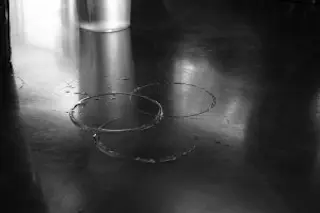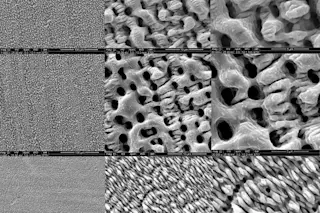Photo: flickr/bradleygeeEver try to lift your wet glass off the coffee table, only to end up just sliding it around because it seems suctioned down? In this study, three physical chemists did some extensive molecular modeling to explain this phenomenon, including asking whether alcohol has a stronger or weaker "seal" than water. Turns out that the surface tension caused by molecular interactions between the water and/or alcohol molecules requires a certain amount of force to break up, and less force is required for alcohol than for water. This has important implications, according to the authors: "This work was done in compliance with ethical guidelines for basic research. Nevertheless, the results may have severe social implications. We note that the energy required for lifting a glass from a wet table is lowest for hard liquor (over 40% alcohol, Figure 10). Hence, intoxicated persons may be tempted to drink, e.g., whiskey rather ...
Chemists explain why it's so hard to lift a wet glass from a table.
Discover why lifting a wet glass from a table can feel like a struggle, especially with alcohol versus water. Explore surface tension effects.
More on Discover
Stay Curious
SubscribeTo The Magazine
Save up to 40% off the cover price when you subscribe to Discover magazine.
Subscribe













